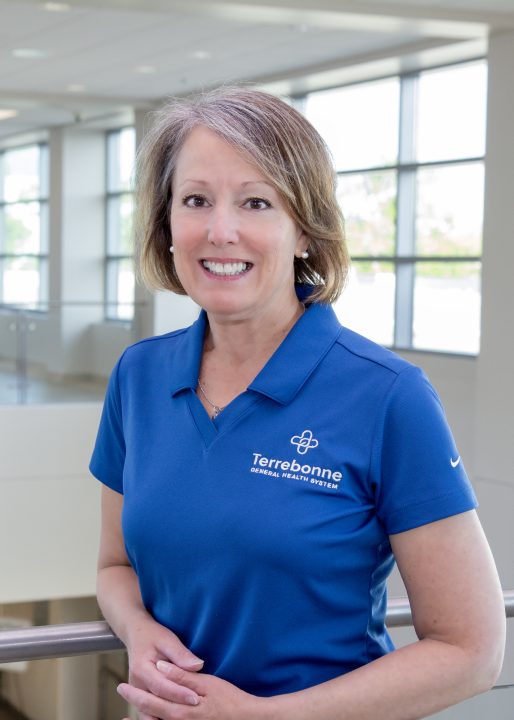WBEC South to host event
January 8, 2013Rain event sparks road closures in Lafourche, Terrebonne
January 9, 2013A program promoting Louisiana seafood in other parts of the nation to offset effects of the Deepwater Horizon oil gusher could prove problematic for members of the state board that oversees it.
The Louisiana Board of Ethics has issued an opinion that states that members of the Louisiana Seafood Marketing and Promotion Board who are members of the seafood industry shall not participate in an aspect of the program that will involve sales and distribution of samples in a multi-state northern retail chain, because a conflict of interest exists.
Doing so, the opinion states, would violate a state ethics law, which prohibits members of boards in Louisiana from receiving anything of value from an entity over which they have control by virtue of their board membership.
There is no accusation that any board members have violated the law. The opinion, sought by Department of Wildlife and Fisheries Secretary Robert Barham, is limited at this point to a promotion for the Giant Eagle supermarket chain, which has stores in Ohio, Pennsylvania, West Virginia and Maryland. It is an advisory opinion, meaning it is not the result of an investigation of a complaint, but a response to a request from an agency to determine what it can and cannot do under the law.
The development is important to local fishermen, processors and plant workers, according to industry workers, because of the program’s use – or lack thereof – of the fish they catch or fish products they otherwise produce. Supporters of the opinion say keeping to ethics law allows a greater chance for a wider group to benefit. Opponents of the opinion say it will affect the willingness of industry people to serve on the board in the future for fear of being locked out of some promotional programs.
At least four members of the board, including its president, Harlan Pearse, have been identified by sources in the seafood industry as board members who were to potentially take part in the Giant Eagle program. Pearse did not return a call requesting comment. But Eunice crawfish and alligator processor Doug Guillory did.
Such a restriction, he said, could cause some people to question in the future whether they want to serve on a board that promotes their industry if they themselves are barred from seeing their own businesses benefit.
“The sad part is you are going to have some knowledgeable qualified people in the industry interested in donating time but if it comes down to the promotion board develops a similar program with Sysco or Wal-Mart, and I am their only supplier, my option would be to resign,” Guillory said. “The industry would lose a good voice. I would either need to quit serving that customer or quit the board. We have given this chain a quote on alligator and crawfish products so indirectly I guess it does affect me. If the quote I gave them becomes a sale I would need to resign.”
Daryl Rivere, a Paincourtville wholesaler who sits on the board, also has concerns.
“It’s not clear yet,” he said of the potential fallout for board members. “We don’t know if they will give us an opportunity to speak out in it within a couple of weeks. For the future of the board, I think this would be detrimental. The industry needs a voice and needs to have a board but (members) also need to do business.”
The special program, born because of the oil spill, should be treated as such, Rivere said.
“During the oil spill we had to fight to protect what’s out there,” he said. “We can have regular opinions based on regular times, but this had nothing to do with regular times. We need to base these opinions on regular times and regular budgets.”
Not all board members agree.
“It is understood that when we serve on this board we have to make certain sacrifices for the good of our industry,” said Kimberly Chauvin of the Mariah Jade Shrimp Company in Terrebonne Parish. “You have certain members that have stood by that and others that have not.”
Chauvin has been a vocal critic of fellow board members reaping benefits from their seats, including what to her appears preferential selection for some events in the past. Her complaints have not been addressed officially in most cases.
The opinion may end up being moot to at least some current members of the board, since new appointments will be made for 2013 by Gov. Bobby Jindal. Just how many of the board’s 15 slots will be changed out has not yet been announced as of press time.
But it may affect new members who come on board this year.
Other board members and staff suggested that the opinion could be subject to change. The letter itself states that could be so, if facts involving the program change.
Ethics Board staff attorney Tracey Barker outlined details of the program in her opinion, delivered to Barham and other officials Dec. 26. The Ethics Board approved her opinion at a Dec. 21 meeting.
The genesis is complicated, and the descriptions of overlapping agencies and sub-agencies are a study in bureaucratic alphabet soup.
Barham made the request because the board is an agency within the office of fisheries at LDWF. The 3-year plan includes a program that will spend $30 million through an agreement hammered out between LDWF, the office of the Lieutenant Governor, the Seafood Promotion and Marketing Board, the Louisiana Wildlife and Fisheries Foundation and BP.
The foundation was created to help channel money and programs after the spill.
A Seafood Marketing Campaign Team was created when the marketing board, Wildlife and Fisheries and the foundation entered into a contract with Gregory C. Rigamer & Associates, to manage it. Ewell Smith, the executive director of the marketing board, who serves at its pleasure and was appointed by its members, is on the team along with a representative from Rigamer and a representative of the Food Group, a public relations firm contracted with Rigamer.
It is Smith’s membership on the team, the opinion states, which is problematic, since he must approve aspects of the program and serves directly under the Louisiana seafood board.
“The Seafood Marketing Campaign Team would like to enter into an agreement to provide for at least four product sampling events costing $427,524; recipe cards to cost $7,476; direct mail outs with coupons to cost $50,000. The funds to cover the costs of this seafood promotion would come from the $15 million dedicated by the LSPMB to fund the Seafood Marketing Program it approved. The funds would be released from LWFF through a task order executed by LSPMB’s Executive Director and LDWF,” the opinion states.
“As stated before, the LSPMB is task(ed) with promoting and marketing Louisiana seafood products to end users as well as at every level of the supply chain. Part of the $30 million dollars received from BP is being used to fund specific Distributor Promotions and Incentive Programs,” the opinion continues. “The Seafood Marketing Campaign would like to establish effective programs with vendors who are major distributors of Louisiana seafood products. Because LSPMB board members are participants in the industry, it is likely that the Seafood Marketing Campaign Team may conduct Distributor Promotions and Incentive Programs with vendors that carry Louisiana seafood or other products harvested, processed or dealt by the Board members … Given that LSPMB members are participants in the Louisiana seafood industry, the proposed supermarket promotions could result in a financial benefit to the board members. An example given is that one member is a harvester and the supermarket promotion could lead to higher sale prices for his seafood at the dock. Other board members are processors, and their product might wind up on Giant Eagle’s shelves through brokered or direct sales.”
The specific law involved is RS 42:1111C(2) the opinion states. It provides that “a public servant and a legal entity in which the public servant exercises control or owns an interest is prohibited from receiving anything of economic value for services rendered to or for any person during his public service unless such services are neither performed for nor compensated by any person or from any officer, director, agent, or employee of such person, if such public servant knows or reasonably should know that such person has or is seeking to have a contractual, business or financial relationship with the public servant’s agency.”
Giant Eagle, Ethics Board members concluded, as reflected in the opinion “has a financial relationship with the LSPMB. Since the funds being used to fund the promotion with Giant Eagle can only be paid with the direction by the LSPMB’s Executive Director, who works at the direction of the LSPMB, the board members are prohibited from transacting business with Giant Eagle either directly or through a third-party.”
Trudy Luke, a crab dealer in Houma who serves on the state’s Crab Task Force, and has been nominated for a position on the Seafood Promotion and Advisory Board, said she is aware of the opinion.
“I think it is fair. I think if you are selling your product through a program like that, not that you’re doing something wrong, but that sets up a red light and people can be wondering if you are doing the right thing,” she said, acknowledging that – as Chauvin said – sacrifices must be made for the industry.
But she also said such a sacrifice could be too much at a time when crabs are scarce and businesses like hers are struggling to survive. It’s one reason why she is already questioning whether she wishes to be on the promotion board.
“If that is what the law says, then I don’t think it would be a good thing for me right now.”
“It is important to note that this ethics ruling was proactively requested by the Louisiana Seafood Promotion and Marketing Board and the Louisiana Department of Wildlife and Fisheries together,” said Smith. “The impetus was to understand the implications potential trade programs may have in relation to ethics laws governing our board members. We will be meeting with industry members to discuss the ruling. Other state seafood associations have had success with such trade programs and we are hopeful that we can use this marketing tactic as well.”
An opinion issued by the Louisiana Board of Ethics said members of the state Seafood Market and Promotion Board who are members of the seafood industry could not participate in any aspect of the program that involves sales and distribution of samples to avoid a conflict of interests. The issue was raised after the team entered a deal with Giant Eagle Supermarket.










